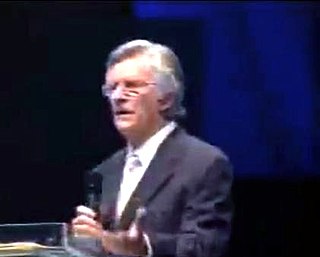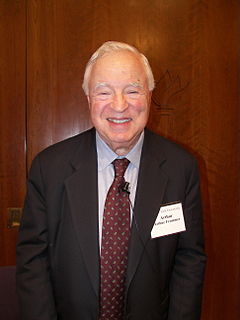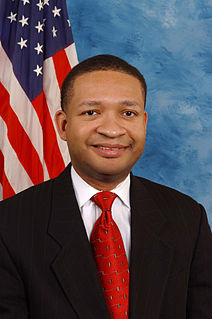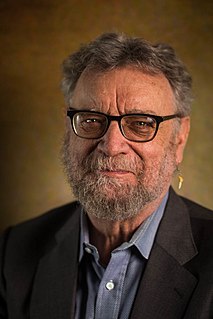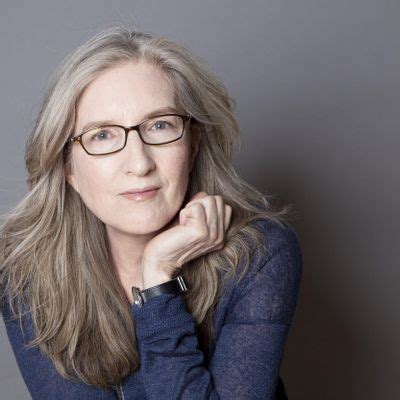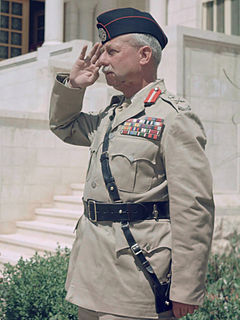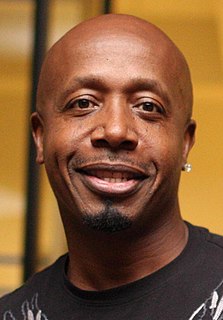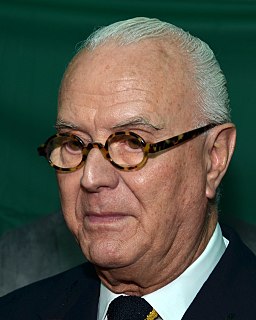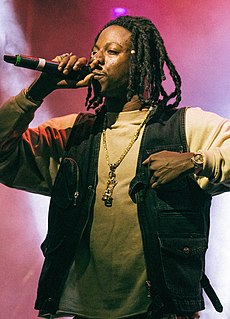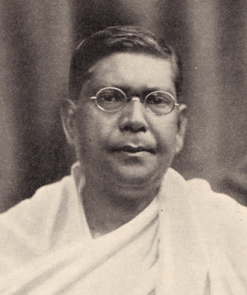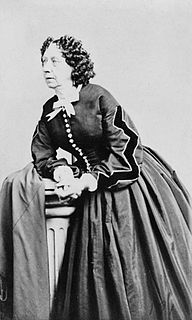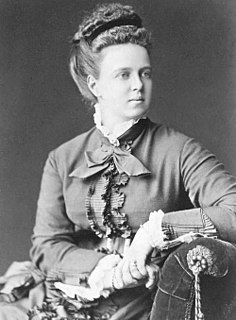Top 244 Lectures Quotes & Sayings - Page 4
Explore popular Lectures quotes.
Last updated on April 19, 2025.
A young man is not a proper hearer of lectures on political science; for he is inexperienced in the actions that occur in life, but its discussions start from these and are about these; and, further, since he tends to follow his passions, his study will be vain and unprofitable, because the end that is aimed at is not knowledge but action. And it makes no difference whether he is young in years or youthful in character.
Prayer and humility, along with a hatred for sin, produces a ‘mind to work.’ ‘So built we the wall; and all the wall was joined together unto the half thereof: for the people had a mind to work’ (Nehemiah 4:6). True revivals of holiness always produce workers. Books and seminars and lectures don’t—but revival does!
Students who have attended my [medical] lectures may remember that I try not only to teach them what we know, but also to realise how little this is: in every direction we seem to travel but a very short way before we are brought to a stop; our eyes are opened to see that our path is beset with doubts, and that even our best-made knowledge comes but too soon to an end.
But indeed an old religious uncle of mine taught me to speak, who was in his youth an inland man; one that knew courtship too well, for there he fell in love. I have heard him read many lectures against it; and I thank God I am not a woman, to be touched with so many giddy offenses as he hath generally taxed their whole sex withal.
As long as I can remember, I've wanted to be a teacher, but a turning point for me was attending HBS as an MBA student. What I experienced was the power of the case method - that is, how much students can learn, not by listening to lectures, but by engaging in an intense discussion. This can be an exciting way to learn and a powerful one, because it really gets all the synapses to connect.
Sometimes at lectures I am asked: how would the champions of the last century play today? I think that, after making a hurried study of modern openings, and watching one or two tournaments, the champions of the last century, and indeed the century before that, would very quickly occupy the same place that they occupied when they were alive.
Introverts need to trust their gut and share their ideas as powerfully as they can. This does not mean aping extroverts; ideas can be shared quietly, they can be communicated in writing, they can be packaged into highly produced lectures, they can be advanced by allies. The trick for introverts is to honor their own styles instead of allowing themselves to be swept up by prevailing norms.
Buckminster Fuller was down in Pennsylvania, then he'd come up and go to his island in Maine. He wanted to remain a New Englander. He taught from '48 to '49 and '50 at Black Mountain College. That's where he met Kenneth Snelson. Fuller kind of stayed a Yankee right in the New England area. So it was pretty easy to get him to come on over, and we would have lectures at the Harvard Science Center.
To travel best requires some time preparing for your visit to a particular location - that you don't travel anywhere without spending a few nights reading about the culture and history of the place you are visiting. This is what most of us don't do - we fling ourselves on an exotic destination hoping that someone will tell us what we are looking at, but by that time it's too late, and all the lectures and tour guides simply add to our confusion.
I would not recommend poetry as a career. In the first place, it's impossible in this time and place - in this culture - to make poetry a career. The writing of poetry is one thing. It's an obsession, the scratching of a divine itch, and has nothing to do with money. You can, however, make a career out of being a poet by teaching, traveling around, and giving lectures. It's a thin living at best.
Backlock, a poet blind from his birth, could describe visual objects with accuracy; Professor Sanderson, who was also blind, gave excellent lectures on color, and taught others the theory of ideas which they had and he had not. In the social sphere these gifted ones are mostly women; they can watch a world which they never saw, and estimate forces of which they have only heard. We call it intuition.
In England Giordano Bruno had given lectures on the plurality of worlds, and in that country had written, in Italian, his most important works. It added not a little to the exasperation against him, that he was perpetually declaiming against the insincerity, the impostures, of his persecutors - that wherever he went he found skepticism varnished over and concealed by hypocrisy; and that it was not against the belief of men, but against their pretended belief, that he was fighting; that he was struggling with an orthodoxy that had neither morality nor faith.
Awarded the Nobel Peace Prize in 1986, Elie Wiesel is also the author of more than 40 books. As relevant as anything to today's discussion are the insights into the Biblical texts that are contained in his lectures and books. They include Messengers of God [1976], Five Biblical Portraits [1978] and his just-published Wise Men and Their Tales - Portraits of Biblical, Talmudic and Hasidic Masters.
The world around us is an increasingly hostile and sinful place. Occasionally that splashes onto us, and perhaps, in the case of a few of you, it may be nearly drowning you. To anyone struggling under the burden of sin, I say again with the Prophet Joseph that God has ‘a forgiving disposition’ (Lectures on Faith, 42). You can change. You can be helped. You can be made whole—whatever the problem.
De-programming the perfunctory ways of meat, dairy, egg and honey-eaters is possible. Conservatively speaking, my lectures have converted hundreds of thousands of people worldwide, while hundreds of thousands more have significantly reduced their meat, cheese, milk, honey and egg intake. Abolition and reduction are the only proper ways to end a Holocaust.
You see? Characters in books do not read books. Oh, they snap them shut when somebody enters a room, or fling them aside in disgust at what they fancy is said within, or hide their faces in one which they pretend to peruse while somebody else lectures them on matters they'd rather not confront. But they do not read them. 'Twould be recursive, rendering each book effectively infinite, so that no single one might be finished without reading them all. This is the infallible message of discovering on which side of the page you are on.
The late British-born philosopher Alan Watts, in one of his wonderful lectures on eastern philosophy, used this analogy: "If I draw a circle, most people, when asked what I have drawn, will say I have drawn a circle or a disc, or a ball. Very few people will say I've drawn a hole in the wall, because most people think of the inside first, rather than thinking of the outside. But actually these two sides go together--you cannot have what is 'in here' unless you have what is out there.' " In other words, where we are is vital to who we are.
My mother lives in Moscow, and I would like to visit her. Now she always has to travel to Finland or a Baltic country to meet me. But I have to expect that my papers would be confiscated in Moscow immediately, and that they would harass my family. I can still have more impact in the West with my books and lectures.
As the years progress, what women and men will discover is that the most lasting and rewarding educational experiences come not from specific information provided in classroom lectures or assigned textbooks, but from the values obtained in active engagement in meaningful issues. We achieve for ourselves only as we appreciate the problems and concerns of others-and only as we see our own lives as part of a much greater social purpose.
My lectures, based on Islamic teachings, were on various subjects. Some of the titles were, 'The Intoxication of Life,' 'The Purpose of Life,' 'The Real Cause of Man's Distress,' 'The Journey to the Goal in Life,' and, one of my favorites, 'The Heart of Man.' They contained important insights that spoke to something deep inside me.
Most people tire of a lecture in ten minutes; clever people can do it in five. Sensible people never go to lectures at all. But the people who do go to a lecture and who get tired of it, presently hold it as a sort of grudge against the lecturer personally. In reality his sufferings are worse than theirs.
By Mamun's time medical schools were extremely active in Baghdad. The first free public hospital was opened in Baghdad during the Caliphate of Haroon-ar-Rashid. As the system developed, physicians and surgeons were appointed who gave lectures to medical students and issued diplomas to those who were considered qualified to practice. The first hospital in Egypt was opened in 872 AD and thereafter public hospitals sprang up all over the empire from Spain and the Maghrib to Persia.
I actually went on lectures at Harvard, Stanford, Oxford and all the business schools eight years ago, explaining what the implications were and how the platforms could be powerful in creating the narrative of your brand and mobilizing your life so that you become humanized as well. I understood that and thought that was really empowering, not only to artists, but to brands as well and in general.
I have a low opinion of books; they are but piles of stones set up to show coming travelers where other minds have been, or at best signal smokes to call attention. No amount of word-making will ever make a single soul to know these mountains. As well seek to warm the naked and frostbitten by lectures on caloric and pictures of flame. One day's exposure to mountains is better than cartloads of books.
For official record, announce instructor, the state requires no epic hero. No strive achieve personal celebrity of spotlight and applause. Lectures instructor, the state desires best ideal perform as mediocre. No gain attention showboat. No buffoon. Best effort so occur average. Suppress climbing ego. Become ordinary. Invisible.
I am not fully informed of the practices at Harvard, but there is one from which we shall certainly vary, although it has been copied, I believe, by nearly every college and academy in the United States. That is, the holding the students all to one prescribed course of reading, and disallowing exclusive application to those branches only which are to qualify them for the particular vocations to which they are destined. We shall, on the contrary, allow them uncontrolled choice in the lectures they shall choose to attend, and require elementary qualification only, and sufficient age.
I like the new shoe designers. Not all of them - there are really bad ones too. But I go to the colleges with these kids for lectures, as an honorary professor or whatever, and this Chinese girl I like very much who I give the award to says to me, "You don't know how much you inspired me to do shoes." And I'm glad that I convey that kind of desire to people when they see my bloody shoes.
(Heinrich von) Kleist would not be a Prussian if his first thought would not have been orderlinessand he would not be a German if he had not placed all his hopes of developing this inner orderliness into education. Education is the secret of life for him as for every German: studying, learning a lot from books, sitting in lectures, keeping notebooks, listening intently to professors.
I was watching lectures by Malcolm X, Martin Luther King, Dr. Sebi and Umar Johnson. It's super mind opening when you listen to those words and think about how much they still resonate today. Think about how true those words are, and how much they predicted the future. That was what was really mind-boggling to me.
True religion is not talk, or doctrines, or theories, nor is it sectarianism. It is the relation between soul and God. Religion does not consist in erecting temples, or building churches, or attending public worship. It is not to be found in books, or in words, or in lectures, or in organizations. Religion consists in realization. We must realize God, feel God, see God, talk to God. That is religion.
A Chinese paleontologist lectures around the world saying that recent fossil finds in his country are inconsistent with the Darwinian theory of evolution. His reason: The major animal groups appear abruptly in the rocks over a relatively short time, rather than evolving gradually from a common ancestor as Darwin's theory predicts. When this conclusion upsets American scientists, he wryly comments: "In China we can criticize Darwin but not the government. In America you can criticize the government but not Darwin."
In all our academies we attempt far too much. ... In earlier times lectures were delivered upon chemistry and botany as branches of medicine, and the medical student learned enough of them. Now, however, chemistry and botany are become sciences of themselves, incapable of comprehension by a hasty survey, and each demanding the study of a whole life, yet we expect the medical student to understand them. He who is prudent, accordingly declines all distracting claims upon his time, and limits himself to a single branch and becomes expert in one thing.
[About Swami Vivekanada:] I am not saying that the message of the Swami was the final word in our nationalism... But it was tremendous - something with an undying glory of its own. If you read his books, if you read his lectures, you are struck at once with his love of humanity, his patriotism, not abstract patriotism which came to us from Europe but of different nature altogether a more living thing, something which we feel within ourselves when we read his writings.
What makes me the happiest are the times I get together with my family, those times when I am with my children, grandchildren, my brothers and sisters and my very close friends, as well as when I am with my extended family in each one of my lectures and power journeys. My greatest joy is just to be alive!
One of the nice things about moving from acting to writing is that your work can be in the public eye without having to be in the public eye yourself. I guess that's not completely true. If you're lucky - and I have been - there are book tours and lectures. I don't have stage fright, and I enjoy meeting people, so that's easy and enjoyable, but it's not a constant, and it's not celebrity.
We need to develop a robust set of tools - strategies and routines - that help us address student variance. It's easy to come to rely on two or three "trusty" instructional strategies like worksheets and lectures. Those are of little help in planning for a variety of student needs. As we develop a better toolbox, we're empowered to meet students where they are.
I love listening to these guys give us lectures about debt and deficits. I inherited a trillion-dollar deficit. ... This notion that somehow we caused the deficits is just wrong. It's just not true. ... If they start trying to give you a bunch of facts and figures suggesting that it's true, what they're not telling you is they baked all this stuff into the cake with those tax cuts and a prescription drug plan that they didn't pay for and the wars.
Self-awareness is a trait that not only makes us human but also paradoxically makes us want to be more than merely human. As I said in my BBC Reith Lectures, “Science tells us we are merely beasts, but we don’t feel like that. We feel like angels trapped inside the bodies of beasts, forever craving transcendence
Lectures broke into one's day and were clearly a terrible waste of time, necessary no doubt if you were reading law or medicine or some other vocational subject, but in the case of English, the natural thing to do was talk a lot, listen to music, drink coffee and wine, read books, and go to plays, perhaps be in plays.
For Immanuel Kant, the term anthropology embraced all the human sciences, and laid the foundation of familiar knowledge we need, to build solidly grounded ideas about the moral and political demands of human life. Margaret Mead saw mid-twentieth-century anthropology as engaged in a project no less ambitious than Kant's own, and her Terry Lectures on Continuities in Cultural Evolution provide an excellent point to enter into her reflections.
…. Query: How contrive not to waste one's time? Answer: By being fully aware of it all the while. Ways in which this can be done: By spending one's days on an uneasy chair in a dentist's waiting-room; by remaining on one's balcony all of a Sunday afternoon; by listening to lectures in a language on doesn't know; by traveling by the longest and least-convenient train routes, and of course standing all the way; by lining up at the box-office of theaters and then not buying a seat; and so forth.
Culture has to be constantly on the vanguard, too. It should be educating people, as it does in Latin America: thousands of great theatres, art cinemas, millions of free books distributed by the governments, public poetry readings, free public lectures, and all sorts of bookstores are open until early mornings, exhibitions reacting to the needs and sorrows of society, concerts of engaged music.
You are taken sick; you send for a physician; he comes in, stays ten minutes, prescribes for you a healing medicine, and charges you three or four dollars. You call this 'extortionate' - forgetting the medical books he must have waded through, the revolting dissections he must have witnessed and participated in, and the medical lectures he must have digested, to have enabled him to pronounce on your case so summarily and satisfactorily.
My general impression about people like Steve Gould and Carl Sagan and so on is that when they disappear as individuals and are no longer appearing on the stage and they are no longer writing, that their lifetime of acknowledgement by the general reading public is not very long... There were many people in the 19th century who were equally famous people who gave working man's lectures, supporters of Darwin, we as scholars know their names but the general public never heard of them.
A year before I met Mark Brydon - he was the one I used to make all the music with in Moloko - I was living in Sheffield with a guy who was studying architecture. I used to go to his college and crash the lectures there. I had enrolled to do a fine art course, but then I met Mark, and we signed a record deal instead.
... when you make it a moral necessity for the young to dabble in all the subjects that the books on the top shelf are written about, you kill two very large birds with one stone: you satisfy precious curiosities, and you make them believe that they know as much about life as people who really know something. If college boys are solemnly advised to listen to lectures on prostitution, they will listen; and who is to blame if some time, in a less moral moment, they profit by their information?
I don't see myself as a movie maker only. When I can do a picture, I do. But I don't work like a business, in pictures. I am not obliged to make one picture after the other in order to live. I write books, I write for comic books, I give lectures... I live. And when the opportunity comes to do a picture, I do a picture.
I had blackouts, fallen out, of course, the death threats, people showing up, putting guns to my wife's head with mask, and people having shot guns in the driveway, looking for me or announcing that I've already died before lectures and sending it through newspaper - sending it to newspaper columns they send my mother and so on. There's a real night side to my particular calling, which is try to bear witness to love and truth.


